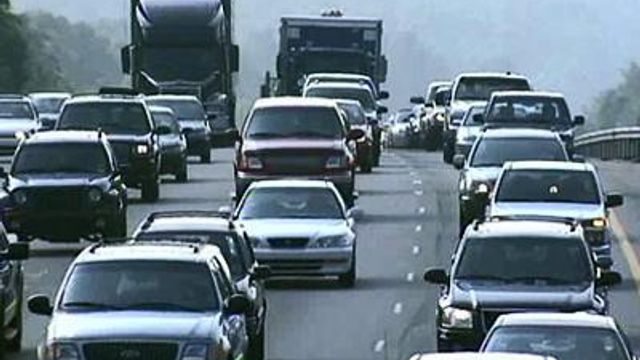NCGo! Backs Pay-as-You-Go Road Tax for N.C.
North Carolina should scrap the state gasoline tax and fund road construction with a system based on how much people travel, according to an organization that pushes for improved transportation funding.
Posted — UpdatedThe 30-cent-per-gallon gas tax is the 15th-highest in the nation and is reviled by many state residents. Some people have said it no longer works as a funding mechanism for highway construction and maintenance because road costs continue to rise as fuel-efficient cars require less gas and the tax produces less revenue.
"The long-term prognosis for our transportation system is not good unless we find more creative ways to meet our needs," said Beau Mills, chairman of the transportation advocacy group NCGo!
Federal and state officials are considering adopting a miles-usage fee to replace a gas tax. Instead of paying for the gallons of gasoline purchased, drivers would pay for the miles they drive.
"It connects the use of the resource, in this case the roads, to how much you use it," Mills said.
Under the system, devices similar to a satellite-tracking system would be placed in each car. They would communicate with wireless readers at gas stations to calculate a vehicle's mileage, and the tax would be added to the cost of any gas purchased.
The system could be adjusted to reflect the type of car driven and whether vehicles spend a lot of time in rush-hour traffic.
"(You) basically charge drivers a different rate for driving in those specific areas and those specific times," said David Kim, an industrial engineering professor at Oregon State University, which developed a miles-usage fee program for that state.
Oregon tested the technology from early 2006 until last March, and Innovation Management, a marketing research firm in Research Triangle Park, is among six sites across the country now trying it out.
Mills said privacy concerns present a major hurdle to adopting the new road-funding system.
"That raises some very valid concerns about, 'Wait a minute. So the government knows where I've been driving?' (It) smacks a little bit of 'Big Brother,' doesn't it?" he said.
• Credits
Copyright 2024 by Capitol Broadcasting Company. All rights reserved. This material may not be published, broadcast, rewritten or redistributed.





